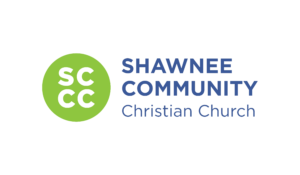a little r & r

Just finished watching one of the latest episodes of “Ted Lasso,” the Apple+ series about a fictional former Wichita State Football coach hired to coach the Richmond, England soccer team by an owner who hires Ted to fail so she can get rid of the team. But much to Richmond’s owner’s surprise, Ted, played by Shawnee Mission West graduate Jason Sudeikis, has a downhome wisdom & self-deprecating humor that wins the owner’s and players’ affections though not many actual games.
In this episode the owner’s father passes away when the discussion in Coach Ted’s office turns to the question of the owner’s father destiny: Heaven or Hell. Ever the chatty sage, Ted chimes in, “You know growing up, I used to believe that if you did good things, you went to heaven. You did bad things, you went to hell. Nowadays I know we all just do both.”
The last sentence in Ted’s statement\stopped me in my tracks. “Did Ted just say what I think he said?” Not the first two sentences about what he used to believe about the destiny of those who do good things or bad things. It was when he added, “Nowadays, I know we all just do both.” I had to rewind the episode to make sure I heard him right.
Because when Ted says, “we all do both,” he introduced an ambiguity we all know deep-down is true. No one is all good or all bad, though we may wonder about some people, who are either heavenly saints or hellish sinners. But what does God do when each of us stands at the Pearly Gates and know good-and-well our lives are a mixed bag of good and evil, though hopefully more good than evil? Ted’s comment opens a can of worms.
Now, anyone who believes what Ted says he used to believe comes by this honestly. The Book of the Deuteronomy provides us with Exhibit A of the idea that good will be rewarded and evil punished. It’s a very attractive attitude, because it’s simple, straightforward, and easy to grasp….until we consider how many bad people prosper and get away with murder, while good people suffer We may even know someone who was abused others who walked away with unmerited rewards. Is life really a meritocracy as Deuteronomy apparently supposes?
Believe it or not the Old Testament wisdom story of Job offers a very different way of thinking than Deuteronomy’s “works-righteousness” model. Job has done everything right. He is a paragon of righteousness but soon after the book begins, he’s dumped on with all kinds of calamity. His children die, he loses the farm, his flesh breaks out in boils and his wife and friends turn against him, insisting he must have done something wrong to have the devil heap so much tragedy upon him. It’s only when Job dresses down God at the end of the book (Chs. 38-42) that Job realizes compared to God’s righteousness and grandeur, he doesn’t have a leg to stand on for declaring his virtue.
The author of the Book of Job’s perspective on why and when bad things happen to good people is considered by some biblical scholars as an intentional repudiation of Deuteronomy’s simplistic code of rewards & punishments. Ted’s 3rd sentence, admitting “we all do both,” echoes Job’s willingness to argue how often the good get punished while bad folks prosper. The final word on the subject falls from Jesus’s lips when he says in Matthew’s Sermon on the Mount, “The rain falls on the just and the unjust.” This is Job’s perspective.
The question is how to resolve this conflict in biblical and popular perspectives?
Over the course of René’s and my lifetime, our family, friends, and parishioners to whom we’ve ministered have seen enough tragedy to make this question of what happens to them and to each of us when we die an urgent question. Not insignificant is how do we get through our grief and losses and remain whole, healthy people. René has often said, “If it weren’t for our Christian faith and friends, we couldn’t have made it through this.” We’ve literally been through the fires and tried to help others through their fires.
But I want to point out a couple of things that may be helpful: First, Ted Lasso is right. “We all do both” good and evil and I mean “all.” This makes Christ’s redemptive act of dying on the cross inclusive of all persons. I don’t mean Jesus’s death was some act of “substitutionary atonement” so we can take for granted God’s love and live as we damn well, please. I mean Jesus’s death demonstrates how deeply God loves us and how much God is love. It’s in this light that Jesus’s use of the word “Them” in his plea, “God forgive them. They don’t know what they do.” “Them” includes all of us, all of humankind, and all of creation of every generation! The cross is a sign of the depth and breadth of God’s compassion.
But this doesn’t mean God has to accept the evil in us in whatever incarnation our life takes in the life-to-come. That evil, to quote Shakespeare and Marc Antony’s funeral oration in “Julius Caesar” is best “interred with our bones.” It’s this kind of understanding philosopher Alfred North Whitehead captures when he writes, “Nothing beautiful is lost to God.” Or as Paul says, “Whatever is pure or excellent, think on these things.” In the life-to-come God receives what God desires while discarding what God doesn’t need or desire.
As I see it, for what it’s worth, the popular mistake much of popular Christianity has made is to assume God accepts us lock, stock and barrel—wholesale—good and evil, ugly and beautiful in the next life. We’re speculating here, and so though this classic understanding of the life-to-come may be true, my faith suggests otherwise.
Consider the scripture’s agricultural allusion to separating the wheat and the chaff in the harvest. Up until a couple of centuries ago, wheat was harvested using a hand thresher. The person threshing would toss the wheat and the chaff in the air. The thresher captured the heavier wheat, but the wind captured the chaff. The chaff would literally “inherit the wind.”
The metaphor is simple. Chaff is whatever is evil and unnecessary in us and in our world for our relationship to God and to one another. These are the parts of our lives God has no need of. We may think of our physical bodies in this way, though Paul alludes in Corinthians to a “spiritual body” he never clearly defines. But there has to be something to what Paul is saying. The resurrection stories in John speak of Mary and the disciples touching Jesus’ crucified hands and side. Something persists, but what? We likely will never know until we die.
So, what might happen when we die? No one can know for sure.
But here’s my hunch, again based upon Whitehead and this metaphor of wheat and chaff: Whatever is beautiful in us God will grasp and keep in God’s everlastingness. It is wheat. Whatever is ugly in us and in our world, God will let go of and will be lost, like the chaff. It will inherit the wind.
I’ve been asked this question: Will we keep our identity and know who we are in the next life? My answer, again purely speculative, is that we will not lose our identity. Yet, in the end, our identity won’t finally matter. I believe when we die and stand before the presence of God, we will be so humbled and overwhelmed with God’s divinity and majesty and beauty, our identity will appear irrelevant. We will become a part of God’s own divinity, being, & wonder. As the song says, “Our God is an awesome God,” and God is! We will understand it all when we die.
Indeed, what John the Baptist said early in the gospels will also be true for us, “One is coming after me the thong of whose sandals I am not worthy to untie.” John expresses what our encounter with God may be like: an experience of glory intermingled with a depth of humility (not humiliation, but humility) we probably have never experienced before. And what a day that will be “when death and pain and mourning will be no more.”
Of course, heaven can wait; but death need no longer control us or cause us to fear because of the glory that awaits us—even as the evil we have done is lost and gone forever!
Literally, for now, Rick





